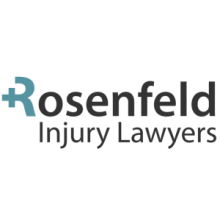To prove that medical malpractice played a role in the death of a loved one, you must first determine the exact cause of death and provide conclusive actions linking the attending specialist to that cause. If a hospital refuses to agree to an autopsy, it could be a sign that officials are concerned with what information could be discovered and used against the hospital in a lawsuit.
Autopsies are Rarely Performed, Leaving the True Facts Up in the Air
 Of the patients who die in the hospital, only 5% receive autopsies today, compared to 50% four decades ago. It used to be standard procedure to perform this procedure to determine exactly how a patient died whenever there was any doubt whatsoever, but hospitals have stopped ordering them because they fear that the findings could result in a lawsuit. While the evidence provided from an autopsy is often classified as hearsay, it can be used in tandem with the testimony of reputable medical experts to make compelling arguments in favor of families seeking damages on grounds of medical malpractice.
Of the patients who die in the hospital, only 5% receive autopsies today, compared to 50% four decades ago. It used to be standard procedure to perform this procedure to determine exactly how a patient died whenever there was any doubt whatsoever, but hospitals have stopped ordering them because they fear that the findings could result in a lawsuit. While the evidence provided from an autopsy is often classified as hearsay, it can be used in tandem with the testimony of reputable medical experts to make compelling arguments in favor of families seeking damages on grounds of medical malpractice.
The lack of an autopsy can also be seen in a negative light because it suggests that the family never suspected wrongdoing because there were no grounds to. The decomposition of a body makes it difficult to gather conclusive evidence when the procedure is not ordered right away, so the choice not to perform one can result in the loss of compelling evidence forever.
You Deserve to Know How Your Loved One Really Died
Even if you don’t believe that your doctor did anything wrong or out of the ordinary, it is advisable to ask for an autopsy to be performed within 24 hours of death. You should immediately suspect that something is wrong if the request is refused. It is possible for an autopsy to reveal surprises to families who never suspected malpractices or to ease the concerns and fears of a family that doesn’t feel everything that could have been done was done. The autopsy itself will show the evaluations from the person performing the procedure along with photographic evidence and information such as time of death and the believed cause. Arguments may be made by both the plaintiff and defendant regarding the validity of the conclusions, but access to renowned medical experts allows our firm to support the conclusions provided following any autopsy.



 />i
/>i

